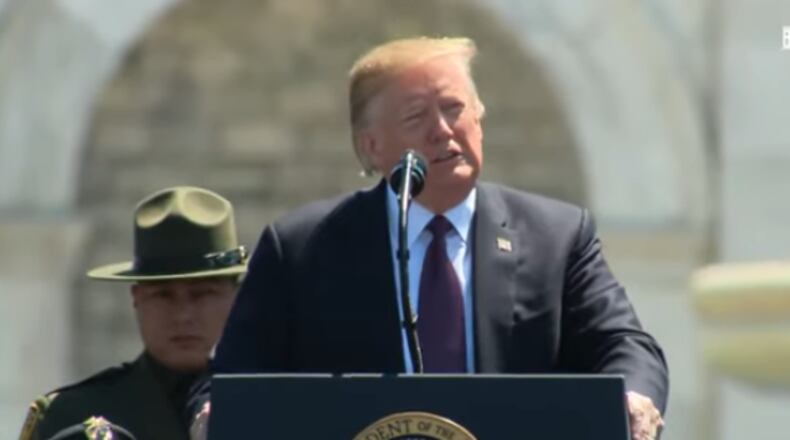In a 12 page letter to Rep. Jerry Nadler (D-NY), Cipollone repeatedly made clear that any inquiry aimed at the White House by lawmakers must be tied to a 'legitimate legislative purpose,' a phrase that's been used repeatedly in recent days to rebuff requests for the President's tax returns, and in court arguments over subpoenas by a House committee.
“As a result, the requests raise serious concerns of violating the separation of powers enshrined in the Constitution,” Cipollone added.
“It appears that the Committee's inquiry is designed, not to further a legitimate legislative purpose, but rather to conduct a pseudo law enforcement investigation,” WH Counsel Pat Cipollone writes in rejecting documents/testimony demanded by the House Judiciary Cmte.
— Steven Portnoy (@stevenportnoy) May 15, 2019
CIPOLLONE tells Nadler of March 4 inquiry seeking docs from 81 individuals: "the appropriate course is for the Committee to discontinue the inquiry"
— Alana Abramson (@aabramson) May 15, 2019
2) Cipollone in letter to Nadler: "Indeed, at every step, the Committee has chosen a strategy of confrontation instead of taking advantage of information provided or offered by the Department of Justice." https://t.co/5jblAU2uQ0
— Billy House (@HouseInSession) May 15, 2019
Specifically on the Russia investigation, Cipollone wrote, "it appears that the Committee's inquiry is designed, not to further a legitimate legislative purpose, but rather to conduct a pseudo law enforcement investigation on matters that were already the subject of the Special Counsel's long-running investigation."
The White House argument is simple - since the issue of Russian interference in the 2016 election was investigated by the Special Counsel and the Justice Department, there can be no repeat by the Congress.
"Congressional investigations are intended to obtain information to aid in evaluating potential legislation, not to harass political opponents or to pursue an unauthorized "do-over" of exhaustive law enforcement investigations conducted by the Department of Justice," the top White House lawyer wrote.
The White House letter specifically cited an interest by Democrats in investigating the 'pardon power' of a President, saying that is not allowed under the Constitution.
But - back in 2001 - Republicans in the Congress held a series of hearings and launched a broad investigation of pardons issued by President Bill Clinton, just before he left office.
White House lawyers say it's improper for Congress to investigate the president's conduct when the Justice Department has already investigated him. pic.twitter.com/PCZCWGptzy
— Brad Heath (@bradheath) May 15, 2019
Democrats have made clear they're not going to just drop their broad array of investigations - vowing to subpoena the former White House Counsel Don McGahn for testimony, as well as Robert Mueller.
About the Author
